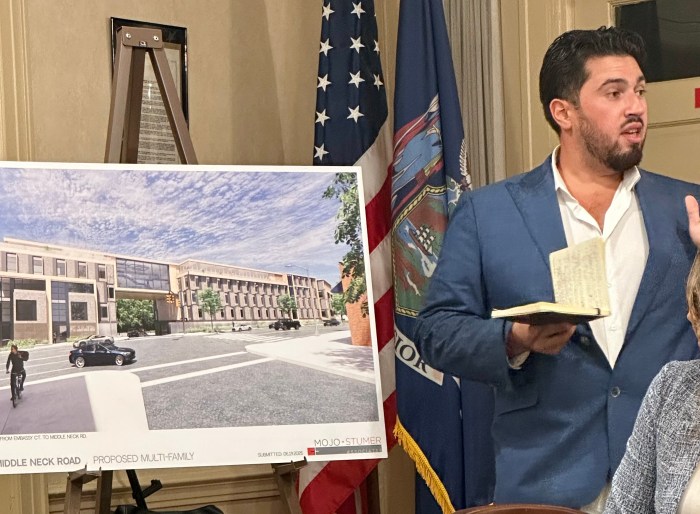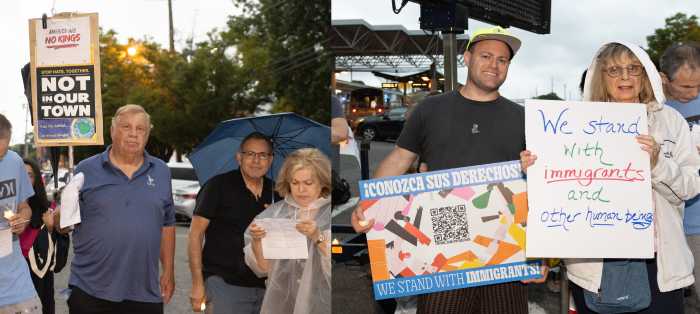On October 1, Magistrate Judge A. Kathleen Tomlinson of the Eastern District of New York signed an order that resolves fair housing claims brought by the Fair Housing Justice Center (FHJC) and Long Island Housing Services, Inc. (LIHS) against the Village of Great Neck Plaza. The lawsuit alleged that the village zoning code discriminates against African Americans by imposing eligibility criteria for affordable housing that gives a preference to local residents. The plaintiffs allege that these preferences perpetuate residential racial segregation in the predominantly white Nassau County suburb.
The lawsuit also alleges that the Nassau County Industrial Development Agency (NCIDA), which is not a party to this settlement, provided financial assistance for affordable housing in the Village of Great Neck Plaza subject to the village zoning code’s discriminatory requirements and preferences.
The two plaintiff fair housing organizations cooperated on a joint investigation in 2013. Each organization used undercover testers to determine whether and how the village’s residency preference system was being applied by the village to screen applicants for 19 affordable apartments in a newly constructed 94-unit rental development called The Maestro. The testing revealed that the village was enforcing durational residency preferences by giving the highest priority to longterm residents of the predominately white Village of Great Neck Plaza, the next highest preference to longterm residents of the predominately white Great Neck Peninsula and the lowest preference to longterm residents of Nassau County. The testing also documented that the village applied an illegal age requirement and excluded applicants with disabilities with live-in home health care aides.
The four-year agreement requires the village to change its Affordable Housing Law by 1) eliminating age and residency preferences, 2) expanding the geographic area in which affordable housing can be developed within the village and 3) continue the practice of offering a 20 percent density bonus as an incentive to encourage the development of additional affordable housing units. The village’s future agreements with affordable housing developers will require fair housing policies and affirmative marketing of affordable housing units to ensure that they are available on a nondiscriminatory basis.
Under the order, the village will inform housing developers about the expanded zoning categories, the existence of available land for development and the incentives that the village will make available for the development of affordable housing. The plaintiffs FHJC and LIHS will provide fair housing training to the village trustees, the mayor and employees responsible for planning, zoning and other land-use activities. In addition, the village agreed to pay $200,000 to the plaintiffs in damages and attorney’s fees.
FHJC Executive Director Fred Freiberg stated, “The federal Fair Housing Act requires that communities receiving federal funds take steps to remove all discriminatory barriers to housing choice and reduce residential segregation.” Freiberg added, “Suburban communities that enact and enforce discriminatory policies or take other action to restrict access to housing on the basis of race, national origin, family status, disability or other protected characteristics will continue to face serious legal challenges.”
LIHS Executive Director Michelle Santantonio stated, “Residential segregation on Long Island is a hazard that negatively affects us all. The federal Fair Housing Act addresses private market and government-sponsored discrimination. Restrictive codes by municipalities demonstrate critical gaps of awareness or a lack of will to comply with edicts of equity. Let this settlement serve as a call to action wherever outmoded or outlawed zoning and restrictive codes hamper the right to fair housing.”
The plaintiffs are represented by Diane L. Houk and David Lebowitz of the law firm of Emery Celli Brinckerhoff & Abady, LLP. The plaintiffs will continue their litigation against the NCIDA.
—Submitted by Fair Housing Justice Center






























